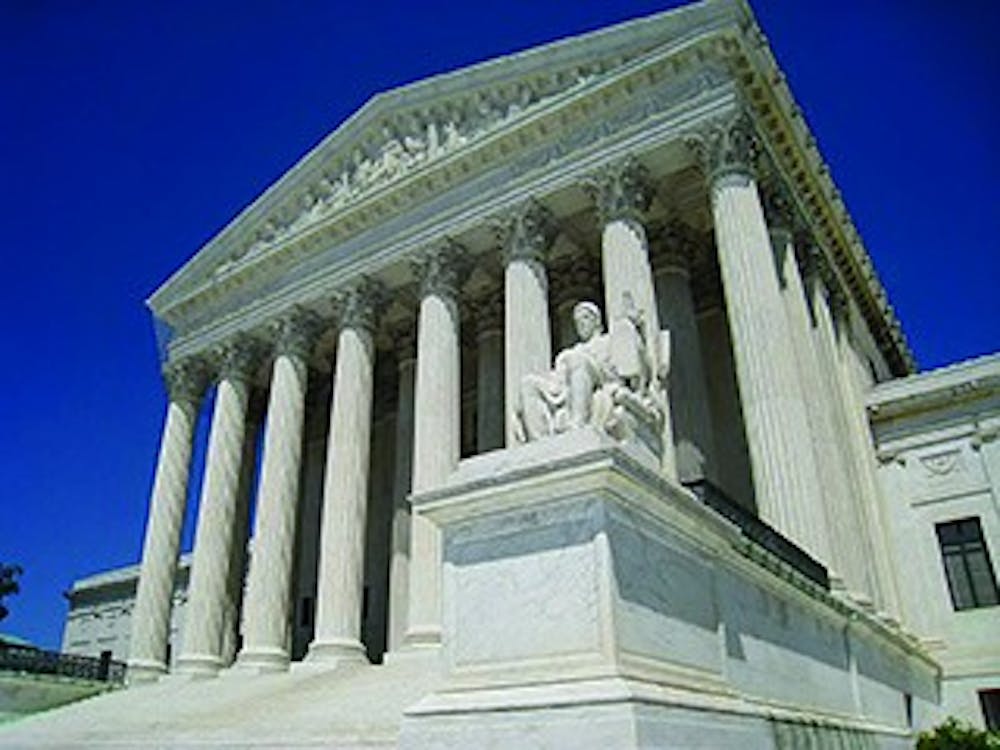With the death of Supreme Court Justice Antonin Scalia, members of the federal government could strike a new balance on the high court that could affect everyone from billionaire bankers to Shippensburg University students.
The court is made up of nine justices, and up until Scalia’s death, it was Republican controlled, but now there are four Democrats and four Republicans. Because of the equal distribution of political power, whoever the next justice is will determine if the court is likely to rule in favor of Democratic or Republican views.
Supreme Court justices, however, are not typical politicians. While they may prescribe to a political party, they do not make historical rulings about the First Amendment or right for a woman to have an abortion based on who will re-elect them. The justices are sworn in for life, and the decisions they make are virtually final, meaning that selecting the next justice is of monumental importance.
The U.S. Constitution gives the federal government little guidance on the qualifications and requirements for an individual to be a Supreme Court justice, according to the Independence Hall Association. Unlike the prerequisites needed to be elected president or a member of Congress, justices just need to exhibit good behavior while on the court.
The process for a justice to hold office is quite different than that of a lawmaker or the president. Instead of running campaigns and convincing the people to vote for them, they are nominated by the president and confirmed by the Senate.
This means President Barack Obama and his administration are racking their brains to find a person that the Senate will confirm. Why will it be difficult to get the Senate to confirm someone? The majority of the Senate is Republicans who want to see a conservative Supreme Court justice as much as Obama wants to see a liberal or progressive justice.
The process is likely to take months as the Republicans move to stonewall Obama in the hopes they can elect a conservative president who will nominate someone up to their standards. Politicians, political pundits and presidential candidates alike went so far as to ask Obama to let the next president nominate a justice. Obama rebutted the calls, saying there is nothing in the Constitution that tells him he has to wait, reported NPR.
“I intend to do my job between now and January 20 of 2017. I expect them do their job as well,” Obama said, explaining the Senate has the obligation to deny or confirm a nominee he presents to them.
Though it is unclear when Obama will present a nominee and how long it will take the Senate to settle on one, the Supreme Court has important cases to be heard. The court could move on with eight justices, but with the political divide a tie is likely to bog the court down.
Since 2000 the Supreme Court decided on the legality of marriage equality, the ability of corporations to donate to political campaigns and whether universities could actively try to make its student body ethnically diverse.
Some cases and issues expected to be reviewed by the court this year include an argument about whether public school unions can charge employees union fees, regardless of whether they are members of the union. This issue may affect hundreds of SU students training to become public teachers. The result of this case may determine whether they will have to pay into a union, even if they do not want to be part of it.
Another case concerns Obama's authority to stop the deportation of millions of immigrants. Obama ordered the Department of Homeland Security to hold off on expelling 5.5 million immigrants, according to the online liberal newspaper Mother Jones, and he is being challenged by numerous states. The court's decision could determine the fate of countless families now and in the future who came to America for a better life.
While not every SU student may be immediately affected by who the next justice is, they probably will at some point in their life. The decisions the Supreme Court makes has implications on the every American, rich or poor, citizen or undocumented immigrant.



The Slate welcomes thoughtful discussion on all of our stories, but please keep comments civil and on-topic. Read our full guidelines here.